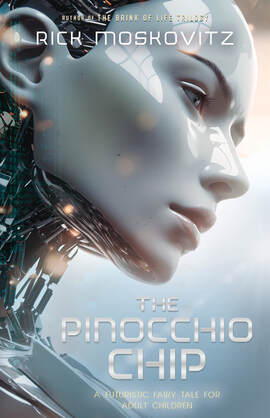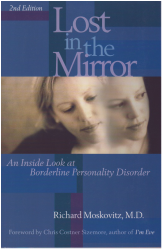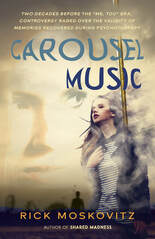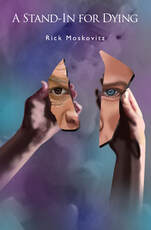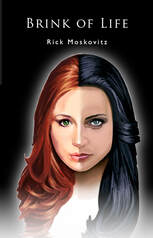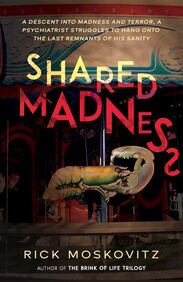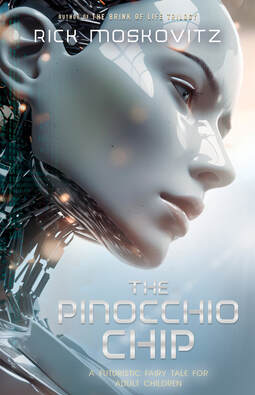Rick Moskovitz - Author
|
Rick Moskovitz is a Harvard educated psychiatrist who taught psychotherapy and spent nearly four decades listening to his patients tell their stories. After leaving practice, he in turn became a storyteller, writing science fiction that explores the psychological consequences of living in a world of expanding possibilities, including even the prospect of evading death. His characters deal with enduring moral and emotional struggles against a backdrop of a near future world that is still dealing with environmental crises as it navigates the intersection of human and artificial intelligence.
|
From the Author
Coming of age in the days of the Beatles, JFK, and Martin Luther King, a youthful sense of purity and immortality collided with a growing awareness that life can turn in the instant it takes for a bullet to leave a gun's muzzle and extinguish something cherished and good. An awareness that trauma shatters spirits as well as bodies led to a quest to help make sense of tragedy and to weave trauma and loss into an ever strengthening fabric of identity. Nearly four decades as a psychiatrist has brought reminder after reminder of life's uncertainty and provided countless opportunities to bear witness to others' pain and to the remarkable capacity of the human spirit to emerge renewed from unfathomable misery. Out of this experience came a special interest in helping those least able to sustain the buffeting to recover their resilience, and a related interest in understanding how we remember and how the narrative of memory influences present day emotion. My understanding of Borderline Personality Disorder grew out of my early experience as an inpatient psychiatrist working with those who had reached particularly desperate crossroads in their lives. LOST IN THE MIRROR: AN INSIDE LOOK AT BORDERLINE PERSONALITY DISORDER was written to provide these sufferers a model of what was happening to them that could help them find their way from chaos to serenity. Accompanying others as they journeyed through their personal histories made clear that the retrieval and remodeling of memories made objective accounts of the past impossible and that the narratives that resulted must be taken as stories designed to make sense of experience. Each time the story is told, it changes a bit. And as the narrative is filtered through the therapeutic relationship, there are opportunities to mold it in ways that can heal. The ability of a therapist to influence how experience is remembered can be powerful and carries with it considerable responsibility to do no harm. CAROUSEL MUSIC integrated my understanding of the complexities of remembering within the context of the narrative of therapy. While framed as an entertaining novel, it is also designed as a guide for therapists and patients to understand the ambiguity of the personal narrative and find ways to validate its essential elements. And it provides a balanced account of the controversy surrounding the validity of recovered memories that prevailed toward the close of the last century. Now retired after 36 years as a trainee, teacher, and clinician in psychiatry, my attention turns to aging and mortality. Passing the Beatles' apocryphal 64, the beginning of the last chapter of life, brings with it the full realization of no longer being among the youngest adults on the planet and certainly not immortal. Bringing meaning to this stage of life is a different kind of challenge that can be particularly sweet if met successfully. As I watch the current generation of young adults assume their leadership roles in our culture, I see once again the youthful illusion of immortality and invincibility, this time with a twist. The singularity is close upon us and with it the prospect, at least in the eyes of the young, that life everlasting is within their grasp. And I wonder, given the temptation to extend life indefinitely, how the choices will be made and at what price the reality of immortality might come. THE METHUSELARITY TRANSFORMATION arose out of pondering the complexities of a world in which immortality becomes possible and contemplating the emotional, moral, and societal impact of providing so weighty a choice. A STAND-IN FOR DYING reimagines and expands the story told in The Methuselarity Transformation, taking it to the next level as the main characters exchange lives and adapt to living in each other's shoes. BRINK OF LIFE, the first sequel to A Stand-in for Dying, further explores the complexity of identity, which is inseparable from the body in which it resides, while its protagonist navigates the conflict between a covert agency plotting world domination and the vigilante organization determined to stop it. THE CREATORS, the final installment of the Brink of Life Trilogy, begins with the search for the intelligent entities responsible for embedding an origin story in our DNA and brings the conflict from Brink of Life to its conclusion. SHARED MADNESS is a psychological thriller. A psychiatrist treating a psychotic patient develops delusions much like his patient’s after he’s found dead. He joins with the patient’s widow in her efforts to solve the mystery of her husband’s death, but nothing in his world is as it appears as he swings between concern for her safety and suspicion that she’s part of a terrorist plot. THE PINOCCHIO CHIP delves deep into the essence of what it means to be alive, challenging the boundaries between AI and human emotion. It's a compelling exploration of identity, the quest for consciousness, and the profound impact of technology on the human experience. |
Proudly powered by Weebly
